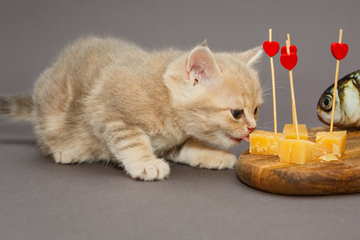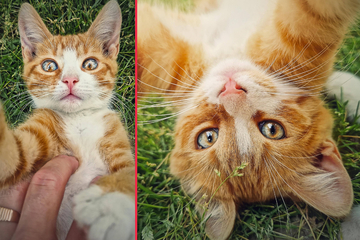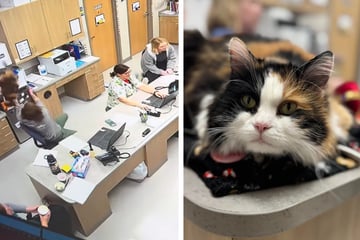Why do cats meow so much?
It's not uncommon for a cat to meow, but if your cat starts being overly chatty, something could be seriously wrong. Why do cats meow so much, when is it normal for them to meow, and how can you help?
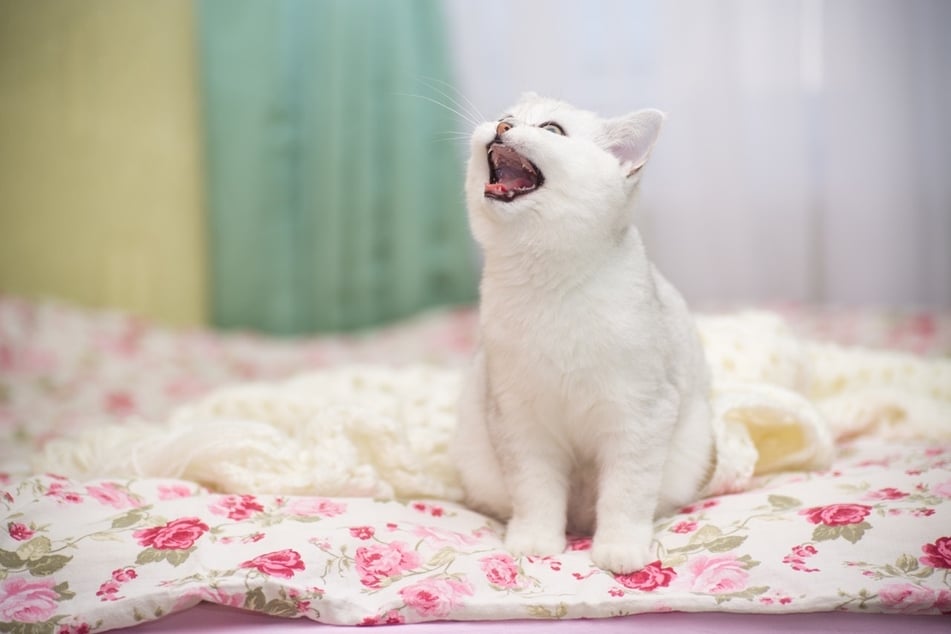
It's fair to say cats are usually fairly quiet creatures, which is why suddenly discovering your feline friend won't stop yapping can be a bit disconcerting.
Of course, cats love communicating – both vocally and through body language – but constant meowing can be a sign of something else, especially if it wasn't there before.
It's important to develop an understanding of why cats meow a lot, to help guide your way through a response when necessary.
So why do cats meow, in particular at night, and is there anything you need to be worried about?
Why do cats meow a lot?
Cats will always meow as a way to either express an emotion, a need, or a desire. Usually, a meowing cat is trying to get something from you, whether that be attention, pats, food, or help due to something that ails it. It's about the context and the sound of the meow, with the cat's body language playing a vital role in diagnosing why your cat might have started meowing more than usual.
Some possible reasons why your cat meows a lot may include:
- Hunger: Is your beloved feline friend a bit hungry? If so, it will let you know by talking to you – feed it, problem solved!
- It's saying "Hello": Sometimes cats do genuinely just want to say hi and get a little bit of acknowledgement and attention – maybe it's time for some petting!
- It wants something: Meows can also indicate desires other than food, like being let out of the house, given something, or paid attention to in some way or another.
- Stress and discomfort: If your cat is stressed for some reason – another cat being in its territory, for example – it may start to yowl and snarl and meow a lot. This also goes if it is feeling uncomfortable or uncertain in a given situation.
- Pain or bad health: When cats are sick or are feeling pain due to an injury, one symptom of this could be increased vocalizing, both in meows and yowls. Go to the vet if you suspect this could be the reason.
- Cats in heat: Female cats in heat often make a lot of strange noises, including whimpering, groaning, and meowing. Give them some space, get them neutered soon, and treat them with some respect.
- Boredom: Sometimes cats just simply get bored. When this happens they'll want your attention, will seek you out, and will proceed to meow.
There are so many possible reasons why your cat might be meowing a lot, or more than usual, that we could hardly list all of them here. As a result, if something is strange, take your kitty to the vet.
Why do cats meow at night?
Separation anxiety as well as concern for the wellbeing of their humans are a few reasons why cats are especially vocal at night. Humans sleep remarkably deeply when considered from the perspective of a cat, so it's not such a surprise that they are concerned for our health and life – to them, it kind of looks like we're dead.
Then there's also the "selfish" angle. When you are sleeping, you are not catering to their every whim and petty desire. As a result, they will get frustrated and they will start to meow at you, seeking to wake you up so that you can complete whatever task they have in mind.
It also doesn't help, of course, that cats are traditionally nocturnal animals, meaning that their activity and energy increases as it enters those evening hours. In the end, it's a cycle that you'll find impossible to break.
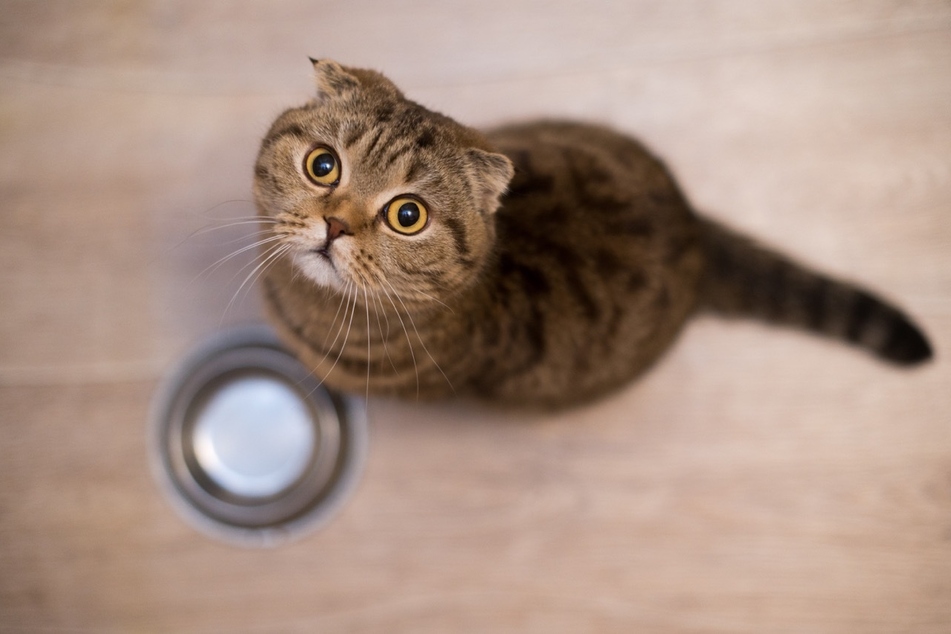
My cat keeps meowing and rubbing against everything
If your cat is meowing and rubbing itself against everything, it could be an indicator of illness, injury, or some kind of psychological distress. It could be rubbing to try to relieve some kind of pain it is experiencing, either from a wound or a sickness of some kind. In such a situation, if your cat seems distressed, it's time for that dreaded trip to the veterinarian.
Alternatively, your cat could be extremely stressed about something and exhibiting that stress in an unproductive and unhelpful way. For instance, another cat could have invaded its territory and it could be rubbing itself against things to mark its scent, all the while meowing to voice and denote its displeasure.
In the case that your cat has started displaying physical symptoms and signs, such as the rubbing, while meowing more than usual, something seriously bad could be wrong. It is best to get it checked out, even if it ends up being completely innocuous.
How to stop a cat from meowing all night
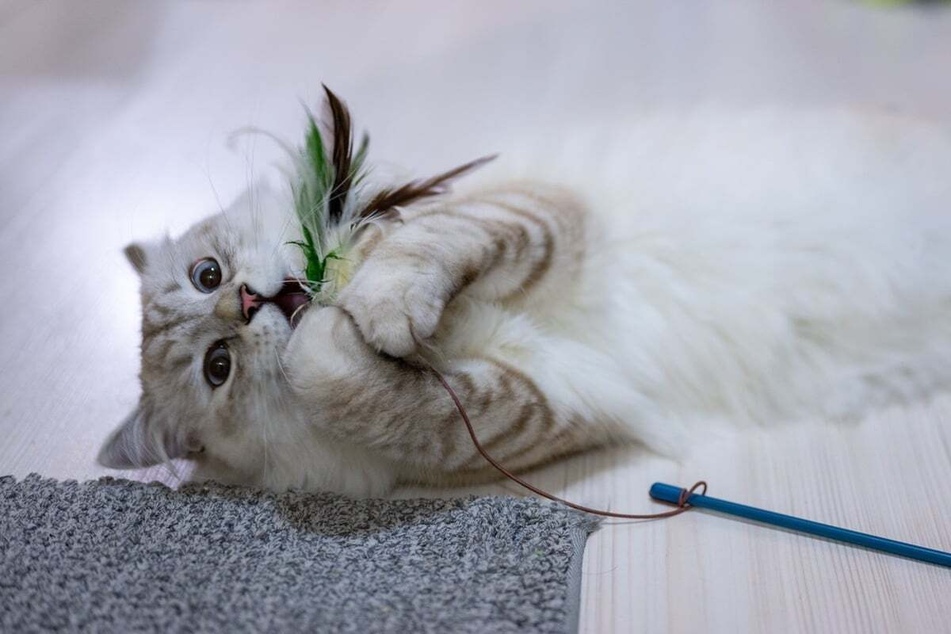
As we discussed, cats usually get in contact with you due to boredom, a need for something, or a fear that you are, well, dead. When you're asleep your cat may well be quite awake. As a result, it needs to be entertained somehow, have a reason to stay away and not disturb you, and should be disciplined if it fails to live up to your expectations.
Here are a few ways to stop a cat from meowing at night:
- Keep it entertained: Make sure that there are toys, games, and plenty of things for your cat to engage with or explore while you are asleep. What you want is to keep it happy and engaged in something else, so it doesn't disturb you.
- Another room: Make sure that you never let your cat stay in the room while you sleep if it is a loud kitty. Guarantee that it has a soft bed, food and water, and a litter tray, and keep it in a room as far from the bedroom as possible.
- Food and water: Your cat will often be looking for food and water when it wakes you up. As a result, make sure it has a meal and a drink before you sleep, and has plenty of food to keep it going through the night.
- Freedom: Give it space and time to explore plenty while you are asleep, even in some cases letting it outside to explore the bush or forest while you're in bed. Just be aware of any risks that may be present in your area.
- Discipline / Punishment: You should never physically or aggressively discipline your kitty. Instead, focus on positive reinforcement. Behave great around your cat when it doesn't wake you up, and completely ignore it when it does wake you up. Establish in its head - wake up equals bad stuff, let sleep equals good stuff.
- Exhaustion: Play with your cat thoroughly before bed, chasing it through the house and allowing it to play with toys, engage in chase, and maybe even go outside for a few hours. The idea is to simply tire out your fluffy friend and get it so exhausted that it'll sleep through the night with you.
While obviously not a complete guarantee, if you follow these few steps you can reasonably expect a reduction in meows and an increase in good, uninterrupted sleep.
Cats yowl out of terror, so learn the difference
An angry or upset cat isn't going to chirp softly at you, but will scream in an unpleasant and rather distressing way. When this happens, it's time to jump into action and get a handle on the situation. Your cat might be yowling because of another cat, at which point you should remove your kitty from the situation, or it could be due to some form of danger.
Either way, it's time to deal with the problem. It is pretty obvious if your cat meows out of anger or fear, or due to love. Learn to recognize the signs and respond accordingly. As always, if you're unsure, it's off to the vet!
Cover photo: 123RF/Rawlik

